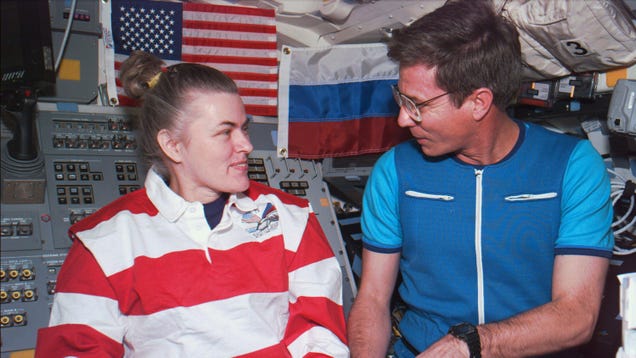The Intersection of Space and Democracy: Voting from the International Space Station
As the United States gears up for another presidential election, the importance of voting extends beyond Earth’s atmosphere. With over 150 million Americans expected to cast their ballots, the notion of voting from space has become a topic of interest, particularly in light of recent advancements in technology and the unique circumstances faced by astronauts. This article delves into the fascinating intersection of space exploration and democratic participation, exploring the challenges and triumphs of voting from the International Space Station (ISS).
Understanding the Historical Context of Voting from Space
Voting from space is not just a modern convenience; it has historical roots that highlight the evolving relationship between space exploration and civic duty. The first instance of an astronaut facing voting challenges occurred when a Texas astronaut was denied the right to vote while stationed aboard the Space Shuttle. This incident sparked discussions about the rights of astronauts and the need for legislative changes to facilitate voting from space.
In 1997, the U.S. Congress passed the Uniformed and Overseas Citizens Absentee Voting Act (UOCAVA), which allows military personnel and U.S. citizens living abroad to vote by absentee ballot. This legislation laid the groundwork for astronauts, who often find themselves in a unique position, to participate in elections despite being thousands of miles away from home.
The Mechanics of Voting from the ISS
Voting from the ISS involves a series of carefully orchestrated steps designed to ensure that astronauts can cast their ballots securely and efficiently. The process typically begins with astronauts registering to vote and requesting their absentee ballots well in advance of an election. Once they receive their ballots, they must complete them and return them to Earth, often relying on secure communication channels to transmit their votes.
NASA has worked diligently to streamline this process, collaborating with election officials to ensure that astronauts can participate in elections without compromising the integrity of the voting system. For example, astronauts can use encrypted email systems to send their completed ballots back to election offices, ensuring that their votes remain confidential and protected.
The Role of Technology in Facilitating Space Voting
Advancements in technology have played a crucial role in making voting from space a feasible reality. The ISS is equipped with state-of-the-art communication systems that allow astronauts to stay connected with mission control and their families. These systems also enable secure data transmission, which is essential for sending sensitive information like ballots.
Moreover, the rise of digital voting platforms has opened new avenues for absentee voting, making it easier for individuals in remote locations, including space, to participate in elections. As technology continues to evolve, it is likely that the process of voting from space will become even more streamlined, allowing astronauts to focus on their missions while still fulfilling their civic responsibilities.
The Importance of Civic Engagement in Space
Voting from space is not merely a logistical challenge; it symbolizes the broader theme of civic engagement and the importance of participation in democracy. Astronauts, as representatives of the United States, embody the values of exploration, innovation, and responsibility. Their ability to vote while in orbit serves as a powerful reminder that every citizen, regardless of their location, has a voice in shaping the future of their country.
Furthermore, the visibility of astronauts voting from space can inspire a new generation to engage in the democratic process. As young people look up to these pioneers, the message that every vote counts—no matter where you are—becomes increasingly resonant.
Case Studies: Astronauts Who Have Voted from Space
Several astronauts have successfully cast their votes while aboard the ISS, demonstrating the practicality of this process. For instance, in 2008, astronaut Gregory Johnson voted from space during his mission, marking a significant milestone in the history of space voting. His experience, along with those of others who have followed, highlights the importance of ensuring that all citizens, including those in extraordinary circumstances, can participate in elections.
These case studies not only showcase the feasibility of voting from space but also emphasize the need for ongoing dialogue about the rights of astronauts and the mechanisms in place to support their civic engagement.
Looking Ahead: The Future of Voting from Space
As we approach the next presidential election, the conversation around voting from space is more relevant than ever. With the increasing number of missions to the ISS and the potential for future lunar and Martian expeditions, it is crucial to establish robust systems that facilitate voting for all astronauts.
In addition to legislative support, ongoing collaboration between space agencies, election officials, and technology experts will be essential in refining the voting process. By prioritizing these efforts, we can ensure that the voices of those who venture into the cosmos are heard back on Earth.
In summary, the ability to vote from the International Space Station represents a remarkable convergence of technology, civic duty, and human rights. As we continue to explore the final frontier, it is imperative that we also uphold the democratic principles that define our society, ensuring that every citizen, regardless of their location, has the opportunity to make their voice heard.

